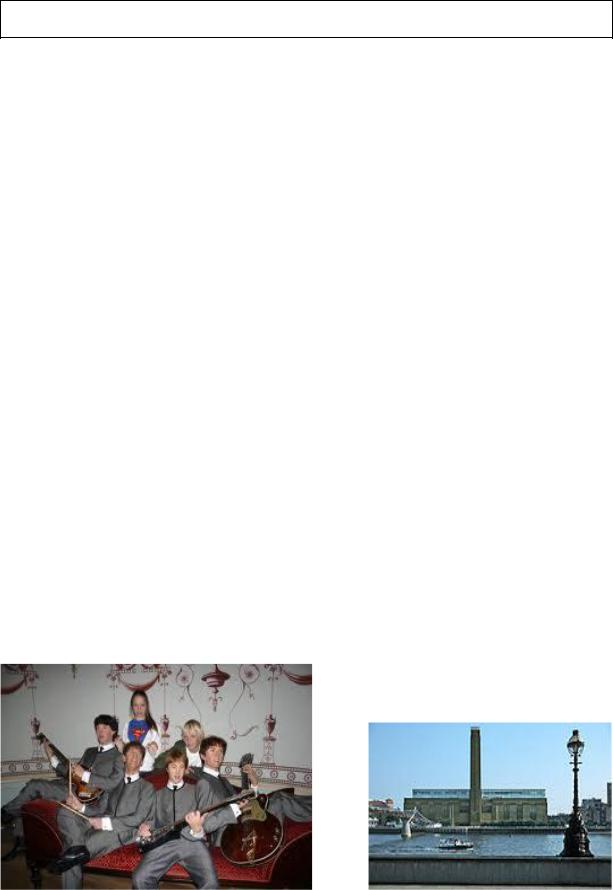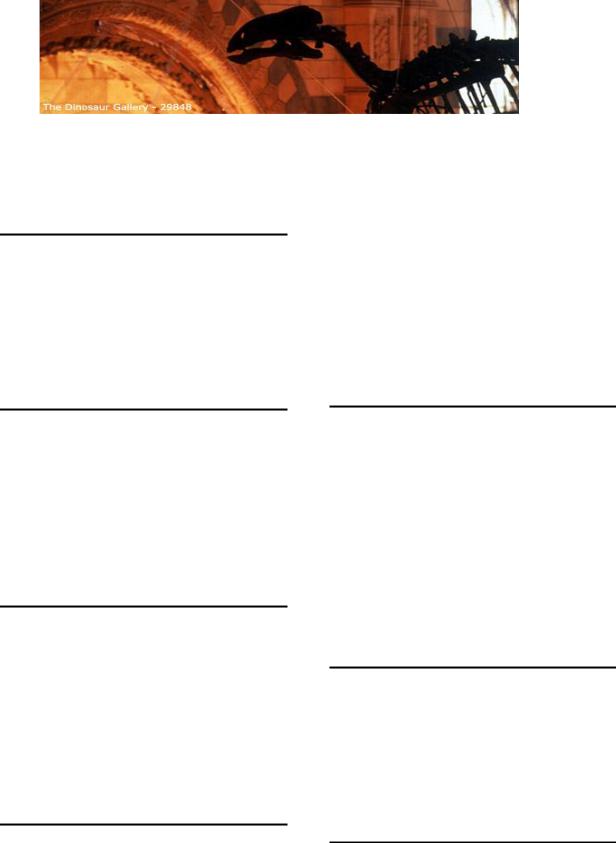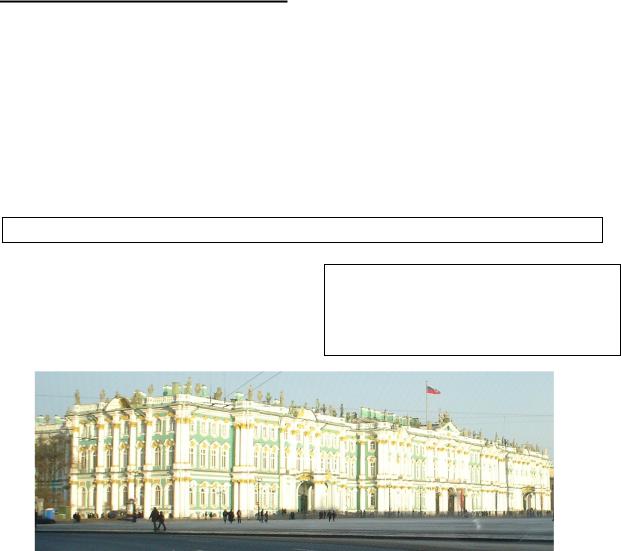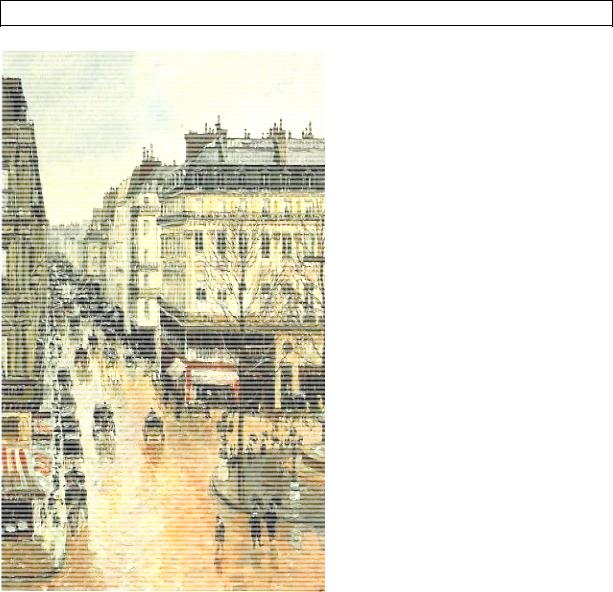
voronina_ev_sotsialnokulturnaia_sfera_obshcheniia
.pdf
12. |
a cockroach |
L |
a big increase in numbers |
13. |
to sabotage |
M |
finding and killing whales |
14. |
a whaling fleet |
N |
an oily liquid that is painted onto wood, |
|
|
|
etc. to give it a hard, shiny surface |
|
|
O |
a thin layer of liquid that is put on a photo |
|
|
|
to make it shiny |
6.d Read the article again. What do these numbers/dates refer to?
1. |
30,000 |
5. |
1992 |
2. |
1946 |
6. |
1,000 |
3. |
1986 |
7. |
2001 |
4. |
1% |
8. |
12 |
6.e Discussion
1.What do you think of whale hunting?
2.What do you think of hunting in general?
3.Is any form of hunting a controversial issue in your country? Which one? Why?
6. Writing
Project: Endangered animals.
7.a Work with a partner. Look at the table and ask and answer questions about these animals.
|
Giant panda |
Elephant |
Rhino |
||
Where it lives |
Southwestern |
Central Africa |
Africa |
||
|
China |
|
|
|
|
Food |
Flowers, grass, |
Grass, twigs, some |
Grass, plants |
||
|
bamboo |
|
fruit |
|
|
How it has become |
|
Destruction |
Hunted for their |
Hunted for their |
|
endangered |
|
of habitat |
|
tusks |
horns |
|
|
Variety |
of |
|
|
|
|
bamboo |
is |
|
|
|
|
decreasing |
|
|
|
|
|
Hunted |
for |
|
|
31
|
|
their fur |
|
|
|
|
|
|
|
|
|
|
|
What has been |
|
Illegal to kill |
The hunting and |
|
Areas |
are |
done to protect it |
|
them |
trading of ivory |
|
guarded |
|
|
|
Special |
has been banned |
|
The |
selling |
|
|
wildlife |
|
|
of |
rhino |
|
|
parks have |
|
|
horns |
has |
|
|
been set up |
|
|
been banned |
|
|
|
|
|
|
|
|
7.b Write about one of the animals above (or any other endangered animal). Mention where they live, what they eat, how they became endangered and what has been done to protect them. Find some photos to use with your project.
32

Unit 3
Arts
In this module you will:
Read about a famous impressionist painter
Talk about your interests in art
Test your knowledge about London museums
Practise prepositions, relative clauses, the present simple and the present continuous tenses
Listen to a tour guide about the Winter Palace in St. Petersburg
Write / Make a Power Point presentation
Learn about a famous recluse
Useful vocabulary:
Nouns |
art, collection, paining, celebrities, exhibition, replica, view, |
Verbs |
media, recluse, masterpiece, hit, band, stardom, royalties |
to experience, to design, to influence sb/sth, to develop as sb, to |
|
Adjectives |
capture, to publicise, to profile, to track sb down, to release |
ancient, modern, urban, visual |
|
Phrases and |
to get somewhere, to get lost, piece of art, solo album, household |
collocations |
name, to speak in public, tour guide |
33

1. Lead-in
Telling the time
1.a Match these times. Then listen and repeat the times.
9 p.m., 4 p.m., 6 p.m., 6 a.m., 12.55, 10.15, 5.40, 4.30, 2.45, 9.10, 9.35, 6.20
six o’clock in the morning, four o’clock in the afternoon, six o’clock in the evening, nine o’clock at night
quarter past ten, half past four, ten past nine, twenty past six
twenty to six, quarter to three, five to one, twenty-five to ten
1.b Look at the prepositions in these sentences.
The museum opens at ten o’clock in the morning. It closes at half past six in the evening. On Fridays, it closes at ten o’clock at night. At the
weekend, it is closed. On Mondays, it is open from ten in the morning until six in the afternoon.
1.c Complete the sentences with the correct prepositions.
at, on, in, from, until
1 It closes __ six o’clock __ in the evening.
It is closed__the weekend.
2 It closes __ ten oclock __ night __ Fridays and Saturdays.
3 It is closed __ the afternoons and __ the weekend.
4 It opens __ half past two __ the afternoon __ Sundays.
5 It is open __ eleven o’clock __ the morning __ eight o’clock __ night __ Sundays.
1.d Do you know the places in the pictures? Match the places in the box below (1-9) with their descriptions in the brochure about London.
34

1 The British Museum |
|
2 Clink Prison |
3 The London Eye |
4 The Globe Theatre |
5 |
Madam Tussaud’s |
6 The National Gallery |
7 The Science Museum |
8 |
The Tate Modern |
9 The Natural History Museum |
8
Do you like modern art? Then this is the place for you!
Open: 10 a.m. – 6 p.m. (SundayThursday) and 10 a.m. – 10 p.m. (Friday-Saturday).
Bankside (Tube: Southwark). Free entrance.
6
This has one of the really great collections of paintings in the world. Don’t miss it!
Open: 10 a.m. – 6 p.m. (MondaySaturday) and 2 p.m. – 6 p.m. (Sunday).
Trafalgar square (Tube: Charing Cross). Free entrance.
1
One of the great museums in the world. There are famous exhibitions from ancient Egypt, Rome, Greece and other parts of the world.
Open: 10 a.m. – 5 p.m. (MondaySaturday) and 2.30 p.m. – 6 p.m. (Sunday).
Great Russell Street (Tube: Holborn). Free entrance.
3
Take a bird’s-eye view of the capital on this amazing big wheel. Spectacular views at night!
Open: 9.30 a.m. – 8 p.m. (in September until 9 p.m. on Fridays, Saturdays and Sundays; in July and August until 10 p.m. daily).
South Bank of the River Thames (Tube: Waterloo or Westminster). Adults: £11.50; students / over sixties £ 9.00; children £ 5.75; under fives free.
5
This wax museum has an incredible collection. There are famous people from history from Napoleon to Winston Churchill, and modern celebrities from the worlds of sport, pop and films.
Open: 10 a.m. – 5.30 p.m. (MondaySaturday).
Marylebone Street (Tube: Baker Street).
Adults: £ 13.50; children £ 10.00. 2
In this old London Prison you can experience prison life. You can also have your birthday party here!
Open: 10 a.m. – 6 p.m. (MondayFriday).
1 Clink St (Tube: London Bridge). Adults: £ 3.50; children: £ 2.50. 4
35

Visit the replica of the old theatre. Learn about the life and play of Shakespeare.
Open: 9 a.m. – 12 a.m. (Monday - Friday).
New Globe Walk (Tube: Southwark). Adults: £ 7.50; children £ 4.50.
7
There are over 10,000 things to see in this fantastic museum. Take a virtual rocket ride around the solar system! Open: 10 a.m. – 6 p.m. (SundayThursday) and 10 a.m. – 10 p.m. (Friday-Saturday).
Bankside (Tube: Southwark). Free entrance.
1.e What places from the brochure are described in ex. 1.c? 1.f These people are in London. Find places for them to visit.
1Billy loves animals and nature.
2Hannah is interested in famous people.
3Martin likes acting.
4Laura is interested in Ancient Egypt.
5Joanna likes paintings but she doesn’t like modern art.
2.Listening
2.a Look at the photo below of the Winter Palace in St Petersburg. Guess which of these things the palace had at the end of the 18th century.
2.b Listen to a tour guide and check your guesses from ex. 2.a.
2.c Listen again and write the dates for the events below.
1 _____Peter the Great founded the city of St Petersburg.
art gallery, church, exotic birds, fountains, hanging garden, lake, library, rare plants, school, theatre, zoo
2_____Empress Elizabeth ordered Rastrelli to design a new winter palace.
3_____Catherine the Great became Empress.
4_____A fire destroyed the inside of the Winter Palace.
36

5_____The Winter Palace became the headquarters of the Russian government.
6_____It was attacked by the bolsheviks.
7_____The German siege of Leningrad began.
8 _____The siege of Leningrad ended.
2.d What famous palaces or museums are there in your country / city? Tell a partner a few facts about them.
3. Reading
3.a Look at the paining and try to answer these questions.
1 What style is the painting in?
2 Where and when is the painting set?
3 What is happening in it?
4 What colours does the painter use?
While-reading activities
3.b Read about the painter and the painting. Check your guesses from ex. 3.a.
3.c Fill in the missing phrases from the list (A - E) to the gaps in the text. There’s one extra phrase that you don’t need to use.
A but which are so silvery, lively and bright
B such as Cézanne
C bought a collection of modern art D took part in all eight of the
Impressionist exhibitions E is going on in the street
Pre-reading activities
Camille Pissarro (1830-1903) was the only painter who 1)_______________which were held in Paris. Pissarro moved there in 1855 and Paris was the place where he started to develop as a painter. He met other painters like Monet, whose work influenced him and he began his move towards
37

Impressionism. Pissarro later influenced other painters that were younger than him 2)__________. Another painter he encouraged was the young Van Gogh.
In 1893, he began experimenting with urban views of Paris which were painted from the windows of hotels or apartments. In a letter he wrote to his son, Lucien, in 1897, he said, ‘I am delighted to be able to paint these Paris streets that people find ugly 3)_______________.’
Rue Saint-Honoré. Effect of Rain is a painting which explores the effect of rain in the early afternoon. The small figures and carriages capture the movement and activity that 4)_____________. The colours Pissarro uses are not bright but he brilliantly produces the visual effect that comes from the wet streets.
After-reading activities
3.d Look at the underlined words and phrases and try to explain their meaning in other words in English.
4. Language skills
Grammar: The Relative Clauses
4.a Underline the following relative pronouns in the text above.
that where which who whose
Now complete the rules with the correct relative pronoun.
a We use _____ and _____ to refer to people.
b We use _____ and _____ to refer to things.
c We use _____ to say something about possession.
d We use _____ to refer to places.
4.b Look at the descriptions below. The relative clauses are underlined. Find more relative clauses in the text.
the only painter who took part in all eight of the Impressionist exhibitions another painter (who) he encouraged
a letter (that/which) he wrote to his son, Lucien
a painting which explores the effect of rain in the early afternoon
the colours (that/which) Pissarro uses
4.c Look at ex. 4.b again. When can we leave out the relative pronouns who, that, which?
awhen it come before a verb
bwhen it comes before a noun or a pronoun
4.d Read the sentences below. Circle the relative pronouns and underline the relative clauses. Then put brackets around the pronouns which are not necessary.
Example 1 I loved the museum (that) we visited yesterday.
38
1 I loved the museum that we visited yesterday.
2 He was a painter whose works were sold for over $10,000 each.
3 The painter who you were talking to sells his paintings to the best galleries in Paris.
4 The opera that we saw was terribly boring.
5 I think the architects who design new buildings in Warsaw are too conservative.
6 Have you bought the CD which I was telling you about?
7 The place where we met is the oldest in town.
4.e Fill in the gaps with relative pronouns: who, which, where whose. Put brackets round the relative pronoun if it can be dropped.
I suppose I’m not a great art lover. I like poster 1_____look good in my bedroom. I usually buy posters 2_____I find in big stores. I like buying pictures 3_____go well with my mood. Sometimes, I go to art galleries 4_____I buy copies of famous paintings. I prefer pictures 5_____are realistic. Some people 6_____I know spend lots of money on paintings 7_____are really expensive and 8_____look horrible. I have a friend 9_____collection of
modern art is very valuable. The paintings 10_____ he buys are perhaps more sophisticated than mine but I’m happy with my collection.
4.f Add relative clauses to complete the sentences so that each says true about you.
Example 1 I enjoy watching films which make me laugh.
1 I enjoy watching films which …
2 I enjoy watching films (-) …
3 I like meeting people who …
4 I like meeting people whose …
5 I like meeting people (-) …
6 I like visiting places where …
7 I like visiting places that …
4.g Write definitions of these words.
actor, architect, art gallery, boutique, camera, castle, composer, library, fashion designer, portrait, ticket
Example: An art gallery is a place where …
Think of three other jobs, places objects and write their definitions. Then work in pairs and guess your partner’s words.
Example:
It’s a place where… / It’s someone who… /It’s something which…
Grammar: the Present Simple and the Present Continuous Tenses
|
present simple |
|
present continuous |
regular actions or habits |
|
actions happening now, or around now |
|
|
a fact or general truth |
|
a trend, i.e. changing situation |
|
timetables and programmes |
personal plans for the future |
|
39

Note: some verbs which describe states, e.g. be, want, believe, know, understand, like, don’t usually have a continuous form.
Revise how you form statements, negatives and questions with these tenses. Fill in the table.
Present Simple |
Present Continuous |
statement(to be) – |
statement |
(other verbs) - |
|
negative (to be) - |
negative |
(other verbs) - |
|
question (to be) - |
question |
/ (other verbs) - |
|
4.h Which sentence (a or b) is correct in each context?
1a musician talking about his job a I play drums.
b I’m playing drums.
2a pop star on holiday
a I don’t work.
b I’m not working.
3 a boy talking about his hobby a I take photos of rock groups.
b I’m taking photos of rock groups.
4.i Read an interview with a musician. Put the verbs in brackets in the correct tense, Present Simple or Present Continuous.
A1_______(you work) a lot?
BYes, I 2______(do) a lot of concerts but I 3______(not work)
every weekend. Like today, it’s Saturday so I 4______(relax) here in my garden and 5______(talk) to you.
AWhat 6______(you usually do) at the weekend?
BWell, I 7______(have) a large family. We 8_____(relax) at home – my wife 9_____(not cook) at weekends so on Sundays, I 10______(prepare) a meal and then my father 11______(play) the piano and we all 12______(sing).
AWhere 13______(your family be) now?
BOh, they 14______(wait) for me to help them. It’s my wife’s birthday and we 15______(prepare) a surprise party for her. She 16______(love) surprises. Right now, she 17______(shop) at the mall and the kids 19______(make) the birthday cake. I have to go and ice the cake.
5. Speaking
5.a Complete the dialogue with the words and expressions below. Then listen and check.
how, good morning, great day out, interested in, open, please, thanks very much, tickets
40
